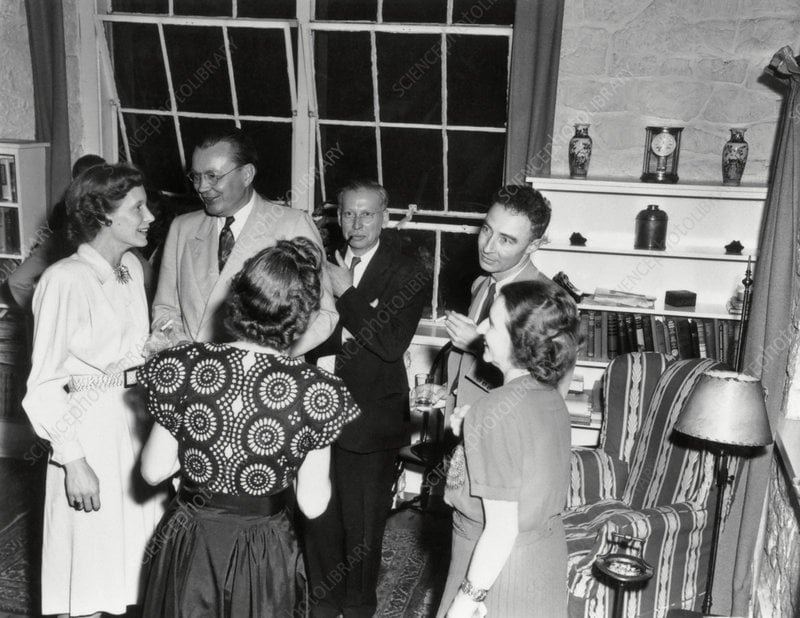Amidst the tumultuous era of the Manhattan Project and the development of the atomic bomb, an unexpected friendship blossomed between J. Robert Oppenheimer and Edith Warner, a remarkable woman who ran a tearoom in the remote region of northern New Mexico. Their connection transcended the boundaries of science and war, offering a glimpse into the humanity and compassion that can emerge even in the darkest of times.
Edith Warner, a transplant from the East Coast, established a tearoom at Otowi Bridge near Los Alamos in the late 1930s. This quaint establishment became a meeting place for locals, artists, and eventually, scientists from the Los Alamos Laboratory. It was here that Edith and Oppenheimer forged an unlikely bond.
Oppenheimer, known for his brilliance in physics and his role in the Manhattan Project, found solace in the serene ambiance of Edith’s tearoom. He appreciated the respite it offered from the intensity of his work. The tearoom became a sanctuary where Oppenheimer could unwind, discuss ideas, and engage in meaningful conversations with Edith and other visitors.
Despite their starkly different backgrounds and circumstances, Edith and Oppenheimer found common ground in their shared love for intellectual discourse and the arts. Edith, an artist herself, fostered an environment that encouraged creativity and deep conversation. The tearoom became a space where Oppenheimer could temporarily set aside the weight of his responsibilities and connect with others on a more personal level.
Their friendship was characterized by mutual respect and admiration. Edith appreciated Oppenheimer’s brilliance and intellectual curiosity, while Oppenheimer valued Edith’s perspective and wisdom. Their conversations spanned a wide range of topics, including philosophy, literature, and the profound ethical implications of the atomic bomb.
In the aftermath of the war, when the devastating power of the atomic bomb became evident, Oppenheimer faced scrutiny and controversy. Accused of communist sympathies, he endured a tumultuous period, which ultimately led to the revocation of his security clearance. Edith, however, remained a steadfast friend, offering support and solace during his difficult times.
The friendship between Oppenheimer and Edith Warner serves as a poignant reminder of the shared humanity that can emerge amidst extraordinary circumstances. In the face of scientific advancements with far-reaching consequences, their bond exemplified the power of personal connections and the capacity for empathy, even in the darkest moments of history.
Edith Warner’s tearoom and her friendship with Oppenheimer became a symbol of resilience and the enduring spirit of human connection. Today, the tearoom is commemorated by the Los Alamos Historical Society, preserving its legacy as a place that fostered intellectual exchange and provided a refuge from the pressures of the atomic age.
The story of Oppenheimer and Edith Warner invites us to reflect on the complexity of the human experience and the potential for unexpected friendships to bridge divides. Their bond challenges us to seek understanding and empathy, even in the face of challenging circumstances, reminding us that amidst great scientific achievements, it is the connections we forge with others that truly shape our lives.
